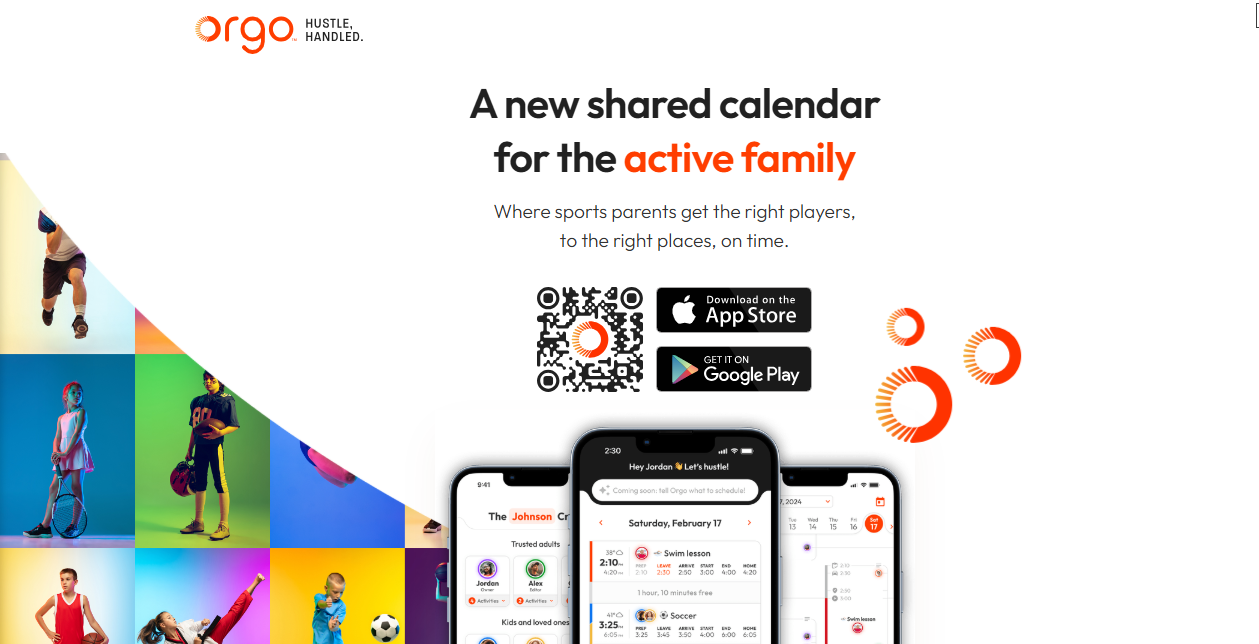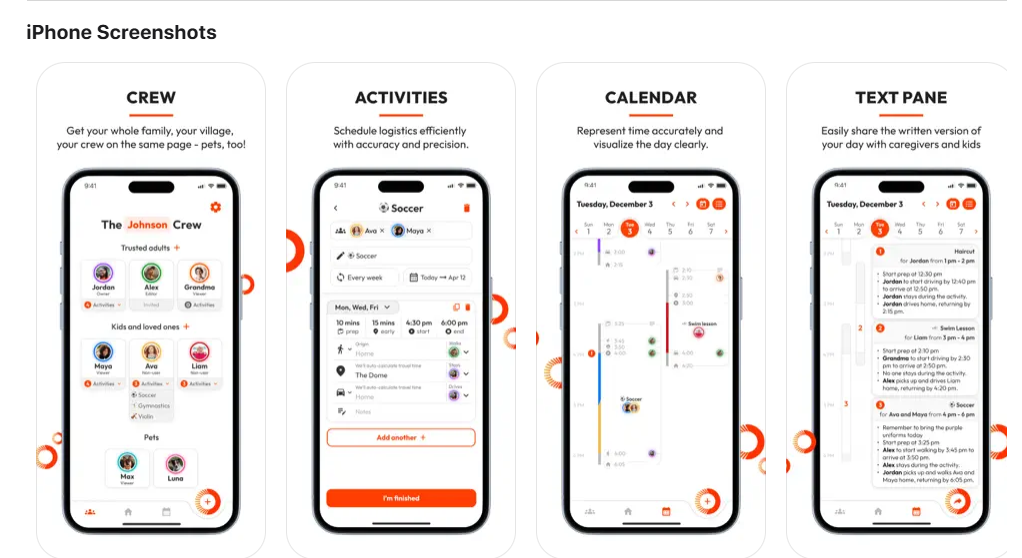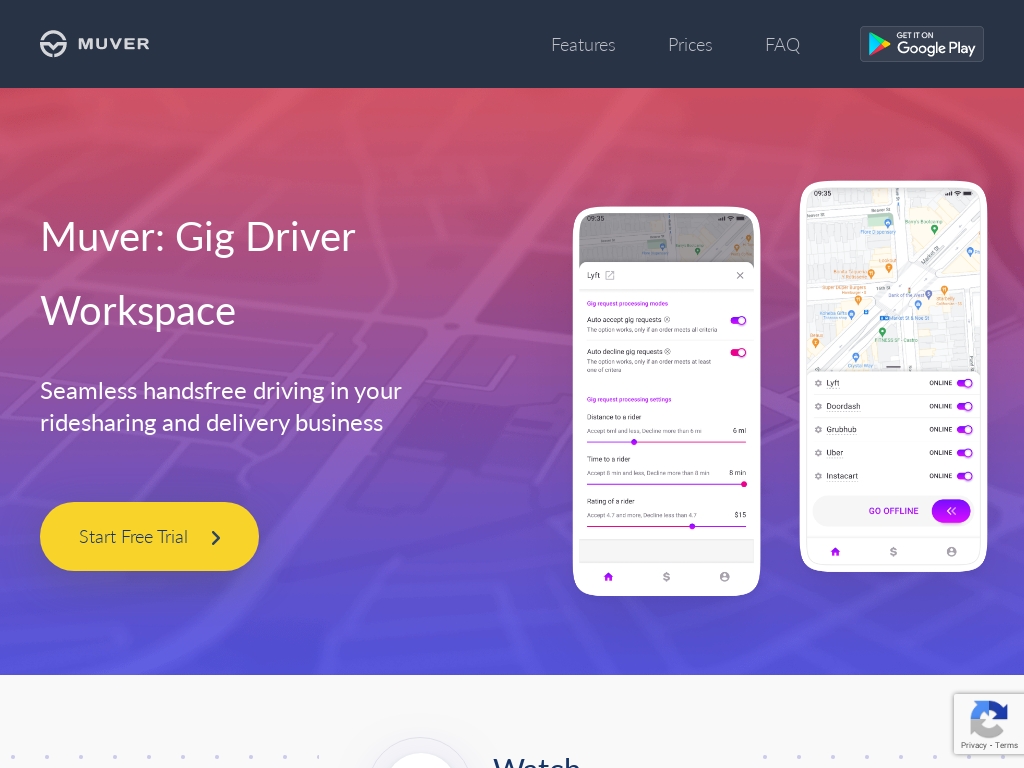
How Orgo Revolutionized Family Logistics App to 1,000 Users in Weeks
Who is Zoya Lehrer?
Zoya Lehrer is the co-founder and CEO of Orgo, a mobile app focused on personal logistics. Born in Ukraine and raised in Brooklyn, New York, Zoya immigrated to the United States with her mother in 1993. She pursued a career in technology, earning a degree in computer science and information technology from Rutgers University. Before founding Orgo, Zoya accumulated 20 years of experience in executive leadership roles in digital innovation, fintech partnerships, and strategic planning in the financial services industry.
What problem does Orgo solve?
Orgo helps busy families manage complex schedules by integrating a calendar, navigation, and communication platform, reducing the chaos of coordinating extracurricular activities and youth sports.


How did Zoya come up with the idea for Orgo?
Zoya Lehrer's inspiration for Orgo began with her personal struggle to efficiently manage her family's complex schedule. Despite her successful career in the corporate world, where she always had the tools to maintain productivity, Zoya noticed a gap in personal logistics management. The challenges of juggling the logistics of her three daughters’ extracurricular activities highlighted the absence of effective tools for coordinating the comings and goings outside the home.
As a dedicated technologist, Zoya was determined to bridge this gap. This led her to conceptualize Orgo, a solution aimed at simplifying logistics for busy families. Before fully diving into building Orgo, she conducted her own market research and confirmed there was a lack of such solutions, focusing specifically on logistics rather than household tasks. Her thought process was affirmed by speaking to others, which ultimately led to a serendipitous meeting with her co-founders, who were equally passionate about the problem.
Zoya and her team embraced feedback during their development phases, carefully iterating the product for public release. Their approach was to start small and refine based on real user experiences, tackling the challenge of user input by gradually implementing automated data handling techniques. Through this process, Zoya learned the significance of aligning on the "how" with her co-founders, focusing on the strategic and practical aspects of bringing Orgo to life.
How did Zoya Lehrer build the initial version of Orgo?
Zoya Lehrer and her team built Orgo through a bootstrap approach, leveraging their expertise to create a B2C experience centered on personal logistics management. The initial product was developed in under a year, and they started with a small team where Lehrer’s co-founder, who has a strong technical background, undertook the coding. This was a hands-on endeavor, focusing on developing the core features known to address the difficulty of managing busy family schedules.
Using tools like Figma for design mockups, they iterated on user experience by initially launching an alpha phase, involving about 30-40 close contacts to refine the product through feedback. They analyzed needs through user interfaces crafted in Figma before expanding to a broader public release. The development phase confronts challenges like designing a seamless and intuitive user interface to replace static calendaring with dynamic logistics, taking into account logistical elements like travel and prep time beyond the standard calendar events.

What was the growth strategy for Orgo and how did they scale?
Networking
Orgo's growth significantly stems from networking, which involves tapping into personal and professional connections. Zoya Lehrer, the founder, often meets individuals who offer insights or collaborate on projects, such as attending events like New York Tech Week and various meetups. Through these interactions, she fosters relationships that could potentially lead to partnerships or collaborations. Networking in informal settings, like coffee meetings, has spurred progress, particularly when Zoya reconnected with her future co-founder, which was a pivotal moment for Orgo.
Why it worked: Networking allows founders to exchange ideas, find partners, and gather feedback in a natural, low-pressure environment. These connections can lead to significant opportunities, such as advice from others leading to strategic decisions that propel the company forward.
Social Media
Zoya Lehrer leverages social media platforms like LinkedIn to share Orgo’s journey transparently, engaging with a community of over 4,000 followers. Her content involves storytelling which draws users to the product and provides valuable insights into the startup world. This approach helps in building a strong digital presence and community around the brand, fostering trust among potential users and investors.
Why it worked: Engaging, authentic storytelling on LinkedIn helps build a personal brand while creating awareness about Orgo. By sharing real-time updates about the product's progress and challenges, she nurtures a loyal following that is invested in Orgo's success, turning followers into users.
Community Engagement
Orgo engages with its community by attending relevant events, from local meetups to industry-specific groups like those focused on "FAMTECH." This participation helps align the product with potential users and gather direct feedback to refine offerings. Additionally, Orgo targets specific user groups, like busy families in sports contexts, through grassroots marketing efforts such as distributing flyers at swim meets.
Why it worked: Actively participating in community events and targeting specific user groups helps tailor the product to meet the real needs of its users. This direct engagement also fosters a sense of community around the product, which is critical for early-stage adoption and word-of-mouth promotion.
What's the pricing strategy for Orgo?
Orgo employs a freemium pricing model, offering its logistics and scheduling app for free while potentially planning future monetization through premium features and extensions targeting active families managing complex schedules.
What were the biggest lessons learned from building Orgo?
- Embrace Criticism: Orgo turned negative feedback into a strategy to improve their product, showing the importance of accepting constructive criticism for growth and innovation.
- Built on User Feedback: The development of Orgo was greatly informed by direct user feedback during alpha and beta stages, underscoring the value of listening and iterating based on real customer experiences.
- Adapt to User Needs: Orgo prioritized manual data input initially to underscore their unique value, with plans for automation, demonstrating the importance of adapting features based on user engagement levels.
- Bootstrap for Proof of Concept: Starting with a small, dedicated team, Orgo focused on developing a product before seeking external funding, highlighting a strategic approach to proving value before scaling.
- Leverage Team Dynamics: Orgo benefited from a balanced co-founder team with clear roles, emphasizing the importance of aligning vision and execution strategies among team members for effective collaboration.
Discover Similar Business Ideas Like Orgo
|
|
Idea
|
Revenue
|
|---|---|---|
|
Marine Digital
|
AI-driven fuel optimization for large vessels.
|
$500
monthly
|
|
InXpress Winnipeg
|
Freight and parcel brokerage for small businesses.
|
$99K
monthly
|
|
Muver
|
Seamless multi-app driver platform for gig workers.
|
$25K
monthly
|
|
Elaphe Propulsi...
|
In-wheel electric motors for cutting-edge vehicle propulsion.
|
$1.2M
monthly
|
More about Orgo:
Who is the owner of Orgo?
Zoya Lehrer is the founder of Orgo.
When did Zoya Lehrer start Orgo?
2022
What is Zoya Lehrer's net worth?
Zoya Lehrer's business makes an average of $/month.
How much money has Zoya Lehrer made from Orgo?
Zoya Lehrer started the business in 2022, and currently makes an average of .

Download the report and join our email newsletter packed with business ideas and money-making opportunities, backed by real-life case studies.

Download the report and join our email newsletter packed with business ideas and money-making opportunities, backed by real-life case studies.

Download the report and join our email newsletter packed with business ideas and money-making opportunities, backed by real-life case studies.

Download the report and join our email newsletter packed with business ideas and money-making opportunities, backed by real-life case studies.

Download the report and join our email newsletter packed with business ideas and money-making opportunities, backed by real-life case studies.

Download the report and join our email newsletter packed with business ideas and money-making opportunities, backed by real-life case studies.

Download the report and join our email newsletter packed with business ideas and money-making opportunities, backed by real-life case studies.

Download the report and join our email newsletter packed with business ideas and money-making opportunities, backed by real-life case studies.













